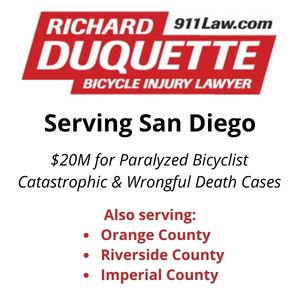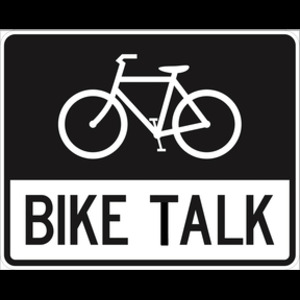
Just 13 days until Los Angeles fails to meet its Vision Zero pledge to eliminate traffic deaths by 2025, a decade of failure in which deaths have continued to climb.
Yet no city official has mentioned the impending deadline, or the city’s failure to meet it.
………
Just seven days left in the 10th Annual BikinginLA Holiday Fund Drive!
Thanks to Bernard B for his generous donation to keep all the best bike news and advocacy coming to your favorite screen every day.
But time is rapidly running out for this year’s fund drive. So what are you waiting for, already?
Just stop what you’re doing and give now!
And if you’ve ever wondered what this site would look like rewritten by AI, today is your lucky day.
As long as you’re willing to view a brief ad, that is.
………
UC Berkeley and the Oliver Wyman Forum have released this year’s Urban Mobility Readiness Index, which ranks 70 cities worldwide on the basis of how well they’re preparing for the future of transportation.
Momentum reports has Paris moved up six spots to second in the index, behind only San Francisco, thanks to a “generational” investment in bicycling infrastructure and public transportation, while de-emphasizing motor vehicles as it moves to create the 15-minute city.
San Francisco retained first place for the second year in a row due to its heavy investment in autonomous vehicles and electric vehicle charging facilities.
Although an autonomous car is still a car, and still takes up the same amount of space on the roadway, while using the rest of us as beta testing subjects. Willingly or otherwise.
As for Los Angeles, we check in at a surprising 15th, despite a mediocre score for sustainable mobility and a deservedly dismal rating for public transit. What saves us is a second-place score for technology adaptation.
However, clicking on the link for Los Angeles only gives you a 404 error, which somehow seems oddly appropriate.
………
PeopleForBikes brings a little much-needed clarity to the debate over ebikes in New York City, where officials have called for registering all electric bicycles, citing statistics showing 46 people have been killed riding ebikes in the city since they were belatedly legalized five years ago.
Yet without breaking down how the crashed occurred, or who was at fault.
Here’s what PeopleForBikes has to say about it.
Over that same roughly five-year period, the number of people who lost their lives in New York City in a crash involving only an e-mobility device climbed from zero a few years earlier to 11 in 2023. That same year, eight cyclists and two pedestrians lost their lives in crashes that did not involve an e-mobility device or motor vehicle. As one might expect, crashes involving motor vehicles were the deadliest, taking the lives of another 22 cyclists, nine e-mobility users, 101 pedestrians, and 112 vehicle occupants. Despite the grim data clearly showing the dangers posed by motor vehicles to all road users, there has unfortunately been an increased focus on e-mobility devices (collectively and often incorrectly referred to as “e-bikes” in the public discourse) as particularly threatening. As the data clearly shows, New York City streets do present a real and present danger for operating an e-bike or e-scooter.
The National Transportation Safety Board (NTSB) and the U.S. Consumer Product Safety Commission (CPSC) both issued reports showing that the growth in popularity of e-mobility devices over the last five years has led to a significant increase in crashes and fatalities nationwide. Appendix B to the NTSB report reveals exactly where these fatalities occurred. Of the 53 reported e-bike fatalities nationwide from 2017 to 2022, 25 occurred in one of the five boroughs of New York City and two more occurred in neighboring cities in New Jersey. New York City had 47% of nationwide e-bike fatalities even though its residents only account for about 2.5% of the U.S. population. So just why is that?…
What is it about New York City in particular that led it to have both 72% of the fire deaths and 47% of the e-bike related deaths from traffic violence? This may be an instance where we should blame the e-bikes, because New York City has a type of e-bike that exists nowhere else on the planet.
According to group, the problem is that Gotham officials made a major boo-boo when they approved ebikes just five years ago, creating Class 3 for throttle-controlled ebikes offering a top speed of 25 mph, which is significantly faster than allowed in other states.
What happened in New York City was that no major e-bike manufacturer was willing to make an e-bike that (1) wasn’t legal to sell or operate anywhere else and (2) was likely subject to federal motor vehicle safety regulations.
The result should have been foreseeable in 2020 but has now become painfully clear in hindsight. Thousands of cheap e-bikes with unsafe speed capability and low quality batteries were made by a few foreign companies and sold to a vulnerable population. The names of these companies are well known to authorities. These companies do not have to bother with quality control, safety compliance, or product liability insurance because they are largely beyond the reach of government regulators and our judicial system. These low-quality e-bikes and batteries were sold not through traditional bike shops, but through e-bike stores that popped up all over the city to cash in on the growing demand for food delivery.
However, New York’s heavy-handed approach requires regulation of all ebikes, including ped-assist bicycles and otherwise safely-made bikes that meet restrictions from other states.
PeopleForBikes offers a few broad suggestions, starting with eliminating the city’s uniquely dangerous Class 3 classification, and modifying federal rules that allow inexpensive ebikes shipped directly to consumers to bypass federal restrictions and inspections.
But whatever the answer is, requiring registration and license plates for slower, ped-assist and safely-made ebikes isn’t it.
………
A new Dutch study confirms what other studies have shown — people who arrive at shopping districts on bicycles or on foot may spend less per visit, but they visit more often and spend more over the long term.
Visitors who come to city centres by bike or on foot visit more frequently and spend less per visit compared to those who arrive by car. Over a longer period, however, cyclists and pedestrians contribute significantly more to city centre spending than commonly thought. In short, they represent an underestimated group for the economic vitality of city centres.
This is a key finding from a national Dutch study conducted by the Platform for City Centre Management, BRO, and Movares on the relationship between spending and visitors’ choice of transportation. The study, conducted in collaboration with 18 Dutch city centres, took place in September 2023. Currently, in 2024, the study is repeated with 20 other Dutch and Flemish city centres.
That finding has held firm whether the study involves downtown areas or the effects of suburban bike lanes.
So you’d think business owners would fight to get bike lanes and pedestrian amenities, rather than fighting them.
But you would be wrong.
Whether in Los Angeles, San Diego, Chicago or virtually any and every other city, they consistently shoot themselves in the tootsies by opposing the very bike and pedestrian projects that would benefit their bottom lines.
………
Clearly, not everyone is a fan of the new South Bay bike lanes. Take a look yourself, and let them know what you think.
………
Let’s take a trip to the not too distant past, and take a look at bicycles in the USSR.
Thanks to Megan Lynch for the heads-up.
………
‘Tis the season.
Over 1,000 students at a pair of Anaheim elementary schools received new bicycles and helmets, thanks to a partnership with Lifestyle Cycles.
Vandenberg Space Force Base held its annual holiday bike giveaway, working with a local group and bike shop to donate 100 bicycles to families of military members.
Chicken chain Raising Canes continues its nationwide bicycle giveaways, partnering with Sacramento Kings NBA star De’Aaron Fox to donate 100 bikes to the local Boys and Girls Club.
The Bozeman, Montana Bike Kitchen has given away 100 bicycles to children in need this year, with another 50 still to go.
Raising Cane’s also worked with a New Orleans Saints player to provide 100 bikes to the Boys and Girls Club of Metro New Orleans.
………
It’s now just two days short of a full year since the California ebike incentive program’s latest failure to launch, which was promised no later than fall 2023. And a full 42 months since it was approved by the legislature and signed into law — and counting.
The California Ebike Incentive Program is finally scheduled to launch at 6 pm today, so get your application in right away. They offer these tips to get you ready.
Let us know how it goes if you decide to apply.
………
Sometimes, it’s the people on two wheels behaving badly.
Good question. A Tulsa, Oklahoma hiker wants to know why organizers of mountain bike races aren’t held accountable for cleaning up afterwards, after discovering plastic tape used to mark the course still on the trail a full week after the race.
………
………
Local
Streetsblog looks at the improvements to Elysian Valley Gateway Park, providing greatly improved access to the LA River path.
Students at Highland Park’s Luther Burbank Middle School are learning how to repair bicycles, while maintaining the bike fleet belonging to the school’s bike club.
Disappointing news from Montrose, where the Montrose Bike Shop announced they would be closing when their current lease expires; the 70-year old store has already begun a going out of business sale.
Apparently, Claremont drivers can’t seem to figure out the city’s new bike lanes, with its “confusing” green mixing zones and bike boxes.
State
East San Diego County is lobbying for more spending on bicycle infrastructure, since the entire area has just one protected bike lane, which only serves to get you the hell out of there.
Bicyclists in San Jose and Los Gatos are complaining about plastic bollards marking a separated bike lane, arguing that they make the road more dangerous, rather than safer.
National
The US Department of Transportation has introduced an updated equity tool, allowing “state and local governments to prioritize transportation investments that benefit disadvantaged communities.” Although equity is not expected to be a priority for the next administration. Or transportation, for that matter.
America Walks considers the impact of the annual Week Without Driving, and how it changes the perspective of those who take part, including elected officials; next year’s WWD is scheduled for the week of September 29th through October 5th.
If you build it, they will come. A new Chicago bike lane is seeing significant use, despite the city’s freezing temperatures.
A New York man was sentenced to two years behind bars and ten years probation for killing a 44-year old woman riding in a Florida bike lane, while driving sleep deprived and after drinking.
A firefighter in Nags Head, North Carolina faces charges for making an unsafe movement after killing a 74-year old man when he struck him with the firetruck, even though the victim was riding in a crosswalk, which is illegal there.
International
Average speeds on Vancouver, British Columbia bikeways are climbing, thanks to skyrocketing ebike use.
Bristol, England will finally install closed-circuit TV cams on a popular bike trail to combat a rampant rate of bikejackings, which has led many riders to abandon it and take their chances on the roads. Which raises the obvious question of how can it be so popular if no one uses it anymore?
A Welsh man will spend the just two years behind bars for a violent bike theft in which he threatened to bite the victim’s nose off, then tried to do exactly that; his accomplice walked without a day behind bars after getting a suspended sentence.
ABC Australia describes how adaptive mountain biking is giving paraplegic riders access to the Tasmanian wilderness.
An Aussie website recommends seven of the best urban bike rides in bike-friendly Brisbane, for your next trip Down Under.
Competitive Cycling
British Cycling is setting its sights on the ’28 Los Angeles Olympics, with a record breaking £38.95 million pound investment — the equivalent of over $49 million — in its cycling and paracycling teams.
Finally…
Tilt the nose of your bike seat down, and maybe you, too, can ride like a pro. When you’re riding your bike through Los Banos with 3,500 fentanyl pills and multiple active arrest warrants, maybe just don’t.
And who needs bike tires when you’ve got tennis balls?
………
Be safe, and stay healthy. And get vaccinated, already.
Oh, and fuck Putin.








